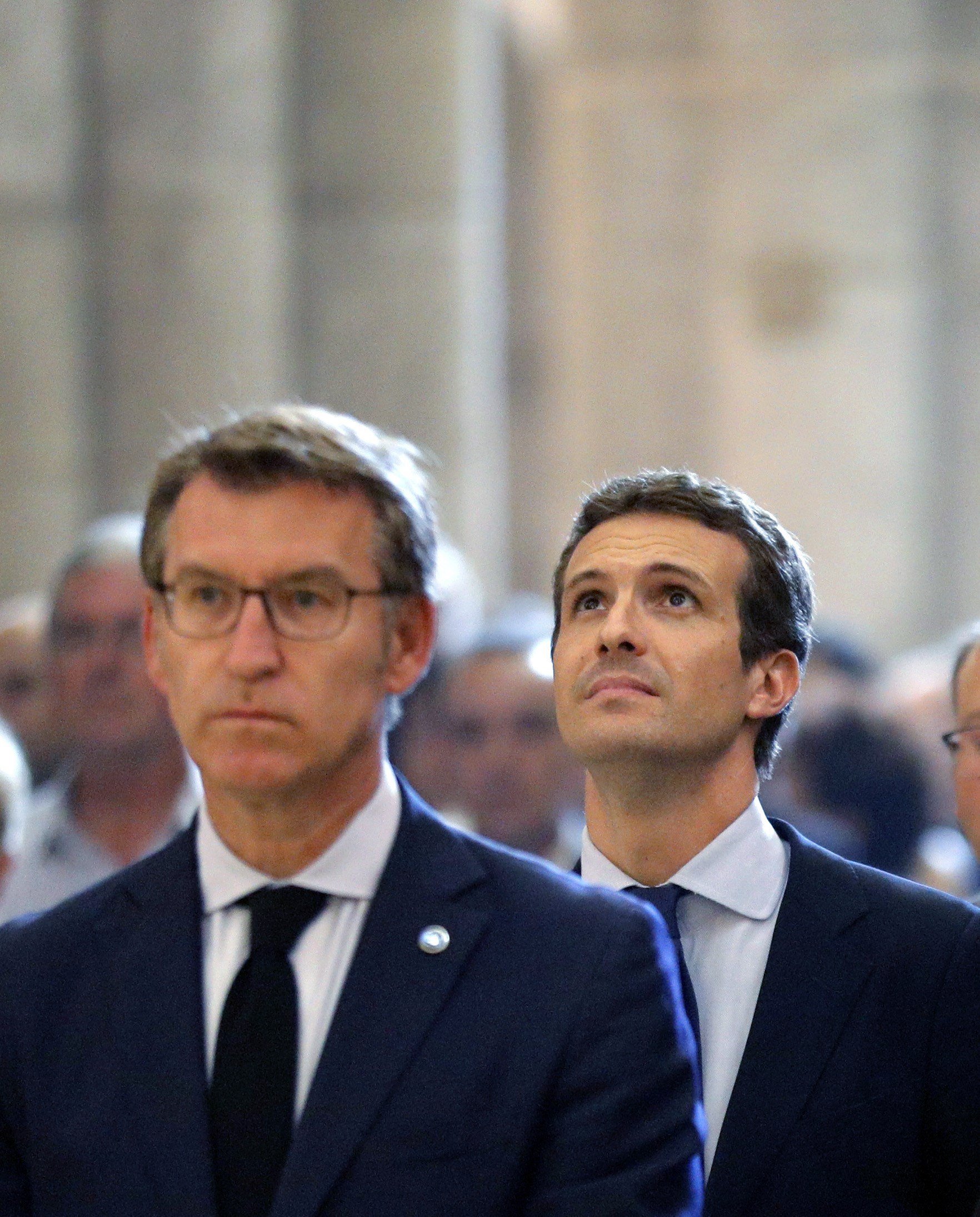Four years ago, Galician leader Alberto Núñez Feijóo gave serious thought to standing for the leadership of Spain's People's Party (PP). In fact, he prepared himself for both options, to the point of having designed his own team. But there were too many contestants in the race and he decided to watch the primaries from the barrier. Now his train has arrived, a few months after he opened the Madrid-Galicia high-speed line. And he too will take the reins of the party by the fast track route. The party's territorial barons, and even Pablo Casado, have given him the nod for the new party phase that is opening. They need leadership that is strong and, above all, clear. And at the XX Extraordinary Congress in Seville, this Saturday at noon, he will be anointed as he wanted: in what they call the Bulgarian style - with a mock vote - by acclamation. Next, however, the task will be to frighten off the ghosts that have haunted the historic party of the Spanish right for four years.
The first warning of the problems to be confronted took place at the party's last major event: its national convention, held last October in Valencia. It sought to be the great moment to "refound" Pablo Casado's PP and prepare the machinery for the next general election. But the reality turned out to be different: the president of the Community of Madrid, Isabel Díaz Ayuso, eclipsed him, applauded by the party grassroots who needed leadership. It was Díaz Ayuso herself who would end up preparing his funeral a few months later, with an alleged story of spies that hardly anyone remembers. Ayuso has now signed a truce with the heirarchy at the Calle Génova party headquarters, but she is still there, as she made clear at Feijóo's side in a "campaign" event: "We are a team of soldiers who will accompany you, but a team that has little time for nonsense and little patience for impositions”.
The second warning came the day after the president of the Xunta de Galicia registered his candidacy at Génova. In the autonomous community of Castilla y León, the PP had reached an agreement on joint government with far-right Vox: handing over to Vox the speakership of the regional parliament; and in the government, the vice-presidency, three ministries and programmatic subordination. Feijóo's will is, in fact, to show that the PP does not need Santiago Abascal's party and that he is not in tune with it either: "The PP has never been an anti-autonomist party, nor a Eurosceptic party, nor a populist party." But he is already caught up in the rhetoric of the extremists. For example, denying that vicarious violence —that perpetrated by men against children to harm a partner or ex-partner— is sexist violence. Feijóo has a lot of work ahead of him if he wants to get out of these tentacles, starting with all kinds of pacts signed at the regional and municipal level. The motto of the 20th Congress promises that Lo haremos bien - "We'll do it well."
Who will surround him?
When the Galician leader asked himself four years ago whether he was going to put his name forward or not, he already had all his hypothetical team designed, as journalist Fran Balado explains in the book El viaje de Feijóo ("Feijóo's journey", 2021). And the general secretary had to be the Valencian Esteban González Pons. This time, however, his right hand will be Cuca Gamarra, the current PP spokesperson in the Congress of Deputies and general coordinator of the party during the current transition. González Pons is also called to play an important role. And it has become known that Elías Bendodo, spokesman for the Andalusian government and right-hand man of president Juanma Moreno, will be the general coordinator, a newly created position. But the composition of the rest of the team is still to be revealed, including the question of whether there is any kind of place for Isabel Díaz Ayuso from Madrid.
Presences and absences
At this congress, the entire Spanish PP will be present, starting with the last three presidents of the party, José María Aznar, Mariano Rajoy and Pablo Casado, with the outgoing leader speaking separately, this Friday afternoon. All the territorial barons will also take part, such as Isabel Díaz Ayuso and Alfonso Fernández Mañueco from Castilla y León, who will be participating in two round tables. However, the whole of the European PP will not be there. Those who will be seen are the president of the European Parliament, Roberta Metsola, and the vice-president of the European Commission, Margaritis Schinas. But there will be no important figures such as Poland's Donald Tusk, president of the European People's Party, who was very critical of the understanding that was reached with the far right in Castilla y León, which he described as "capitulation" and "sad news". There are absences that speak louder than presences.

